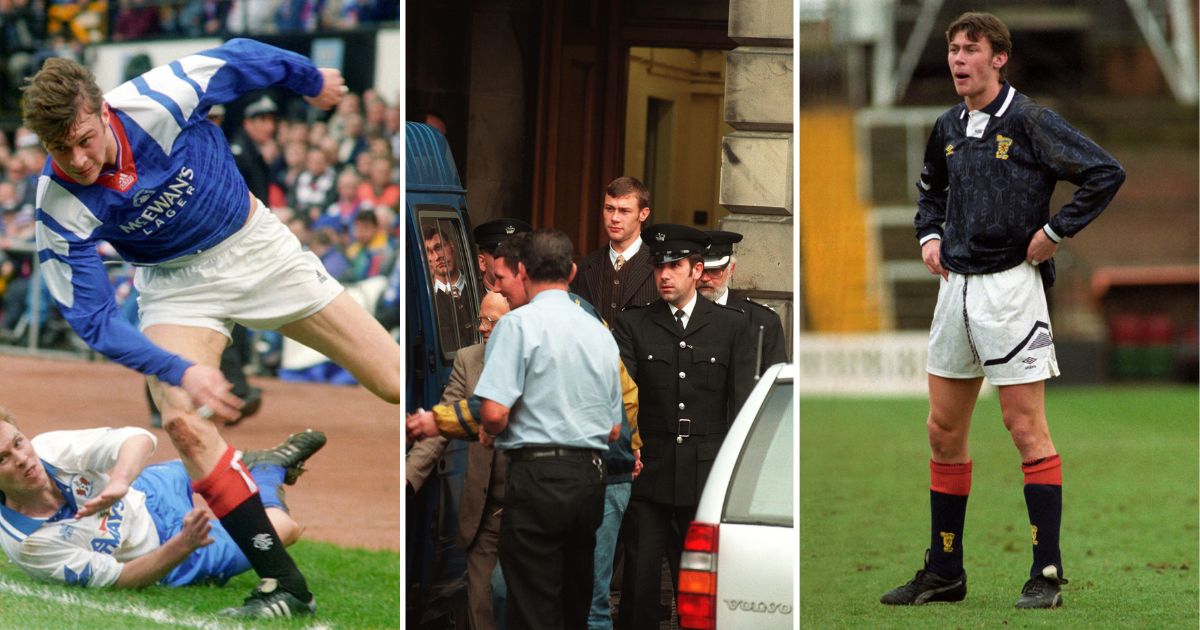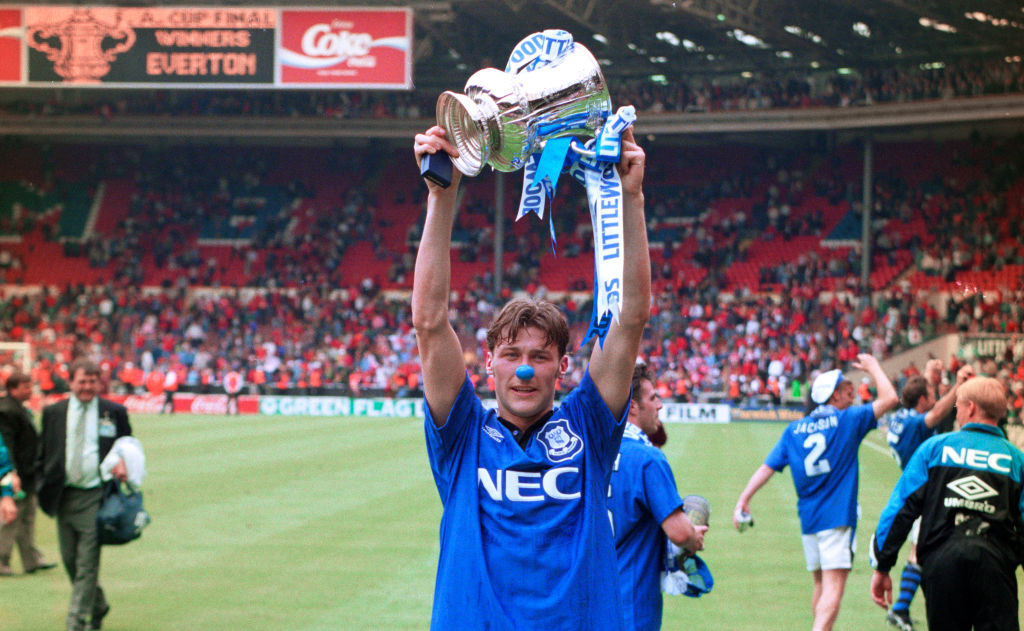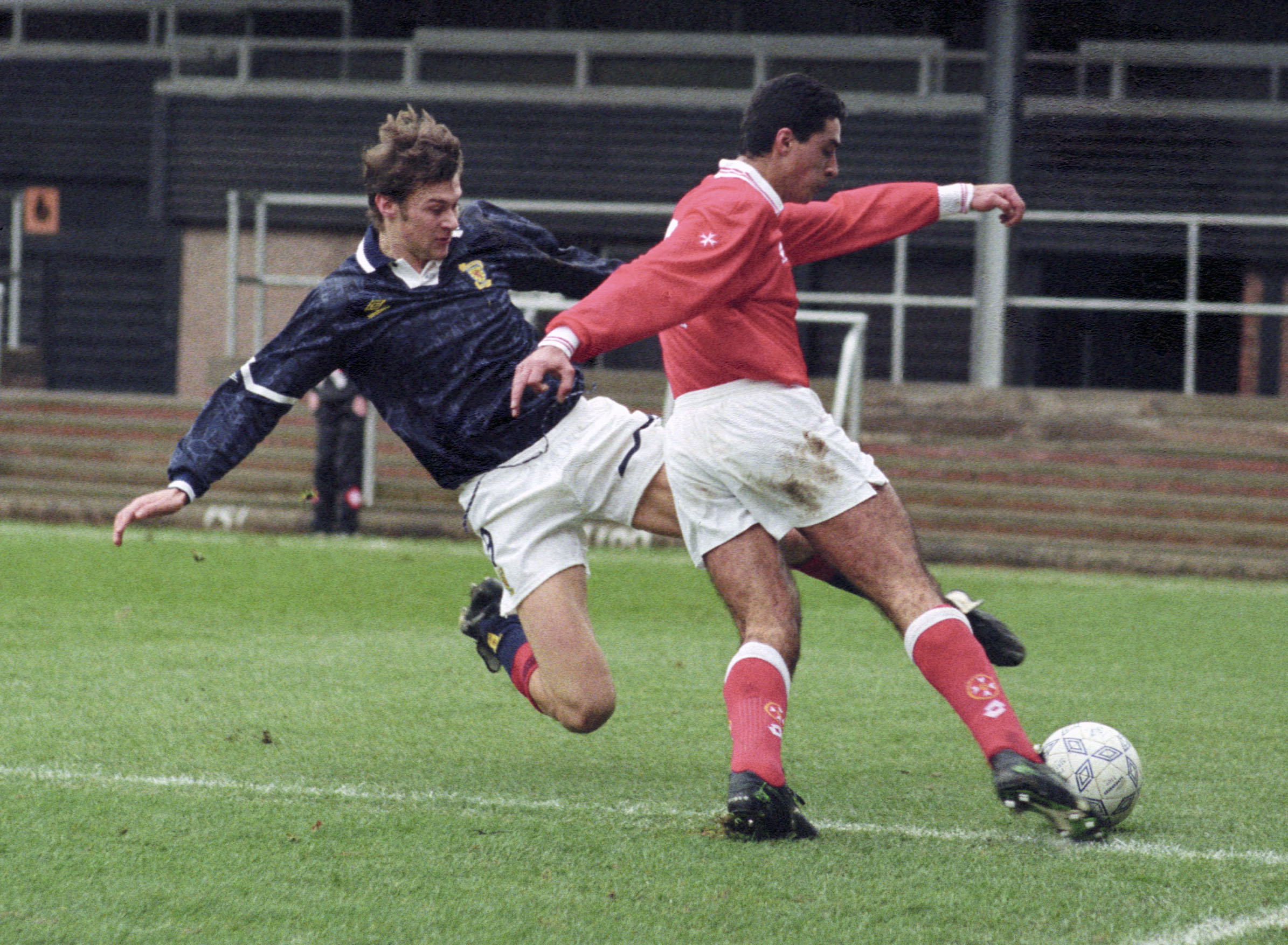‘I wish it hadn’t happened, but I don’t think I deserved to go to prison. I got looked after, but that won’t stop somebody throwing a bucket of s**te at you’ Duncan Ferguson tells FourFourTwo about the horrors of Glasgow’s notorious Barlinnie Prison
The striker served 44 days in prison in 1995 for an on-field headbutt that took place a year earlier

Duncan Ferguson headbutted Raith Rovers’ player, John McStay, on the pitch at Ibrox in April 1994 in one of Scottish football’s most controversial moments.
Incredibly, referee Kenny Clark missed the incident, but the authorities didn’t overlook it, and a year and a half later, the striker was sentenced to three months in prison owing to a breach of probation because of other assault convictions on his record.
Speaking exclusively to FourFourTwo over thirty years later, Ferguson is adamant he didn’t deserve to go to prison.
“I think it was harsh, what happened,” he explains calmly. “So, regret? Yeah, I wish it hadn’t happened. There was slight contact – it wasn’t a full-blooded headbutt – and he went down, but I didn’t expect what came next.
“It was a big moment for me in my Rangers career and in Scotland, because it’s one of the reasons why I moved to the south.
“Walter Smith, God bless him, said I needed to get out of Scotland. In the end, it cost me my Scotland career.”

In addition to the prison sentence, Ferguson was banned for 12 games with the Scottish FA refusing to count games missed while he was in jail.
It left a bitter taste that Ferguson was never able to get over. No Scotsman has scored more Premier League goals than him, yet he never scored for his country at international level, appearing only seven times.
“My heart wasn’t in it. That’s the truth of it. I’d had the stuffing kicked out of me, I’d had the fight taken out of me. I was bitter, I was upset.
“When I came out the nick I retired then. Craig Brown, bless him, said ‘Duncan, no. I’m not going to tell anybody [that you’ve retired] because this is ridiculous. You’re only 23. You’ve got your whole career ahead of you’.
“They kept on pulling me out of squads, they kept on making up excuses. My dad, a proud Jock, a proud Scotsman, said ‘get back’. I ended up going back. I didn’t want to go back. I played a couple of games but my heart wasn’t in it. In the end I said to them: ‘I’m no good to you’.
“it’s the biggest regret of my career not playing more for my country. I should’ve broken goal records. There wasn’t a centre forward who was going to take my place.
“That’s just words now, people forget. My record’s not there.”

There is a bitter irony that Ferguson found himself inside a world he thought he’d escaped thanks to his ability on a football pitch, because of his actions on a football pitch.
Barlinnie is a notoriously violent prison in Glasgow, and Ferguson lived inside it as a Rangers player, on loan to Everton at the time, having joined the Ibrox club for £4 million two years prior.
“I got looked after,” he admits, adding matter of factly: “but that won’t stop somebody throwing a bucket of s**te at you.”
From slashings to suicide, Ferguson was exposed to most of the horrors associated with incarceration.
“I saw it all. Crazy things. People drinking shampoo to make themselves puke up drugs. It was f**king terrible.
I saw it all. Crazy things. People drinking shampoo to make themselves puke up drugs. It was f**king terrible
“I worked in the hospital wing and people would always steal needles, drugs. People were s**tting out balloons full of drugs onto newspapers.
“They were swallowing the drugs, then going into the nick and s**tting it out.
“One day feels like a week in prison. Once you settle and get into the rhythm of the thing, you forget you’re Duncan Ferguson; you forget about your family. You’re a prisoner: you’re in there and you get on with it.
“I’d just won the FA Cup, and it was tough – everyone knows who you are. You have a target on your back.
“You would worry about somebody coming behind you, cutting you. You could get cut in Barlinnie for two quid.
“There were some Everton fans in there, too. There are always Scousers everywhere!”
The best features, fun and footballing quizzes, straight to your inbox every week.
Big Dunc: The Upfront Autobiography by Duncan Ferguson, written with Henry Winter, is available to buy now from in hardback, eBook and audiobook (read by Duncan)

Ketch joined FourFourTwo as Deputy Editor in 2022 having racked up appearances at Reach PLC as a Northern Football Editor and BBC Match of the Day magazine as their Digital Editor and Senior Writer. During that time he has interviewed the likes of Harry Kane, Sergio Aguero, Gareth Southgate and attended World Cup and Champions League finals. He co-hosts a '90s football podcast called ‘Searching For Shineys’, is a Newcastle United season ticket holder and has an expensive passion for collecting classic football shirts.
 Join The Club
Join The Club





